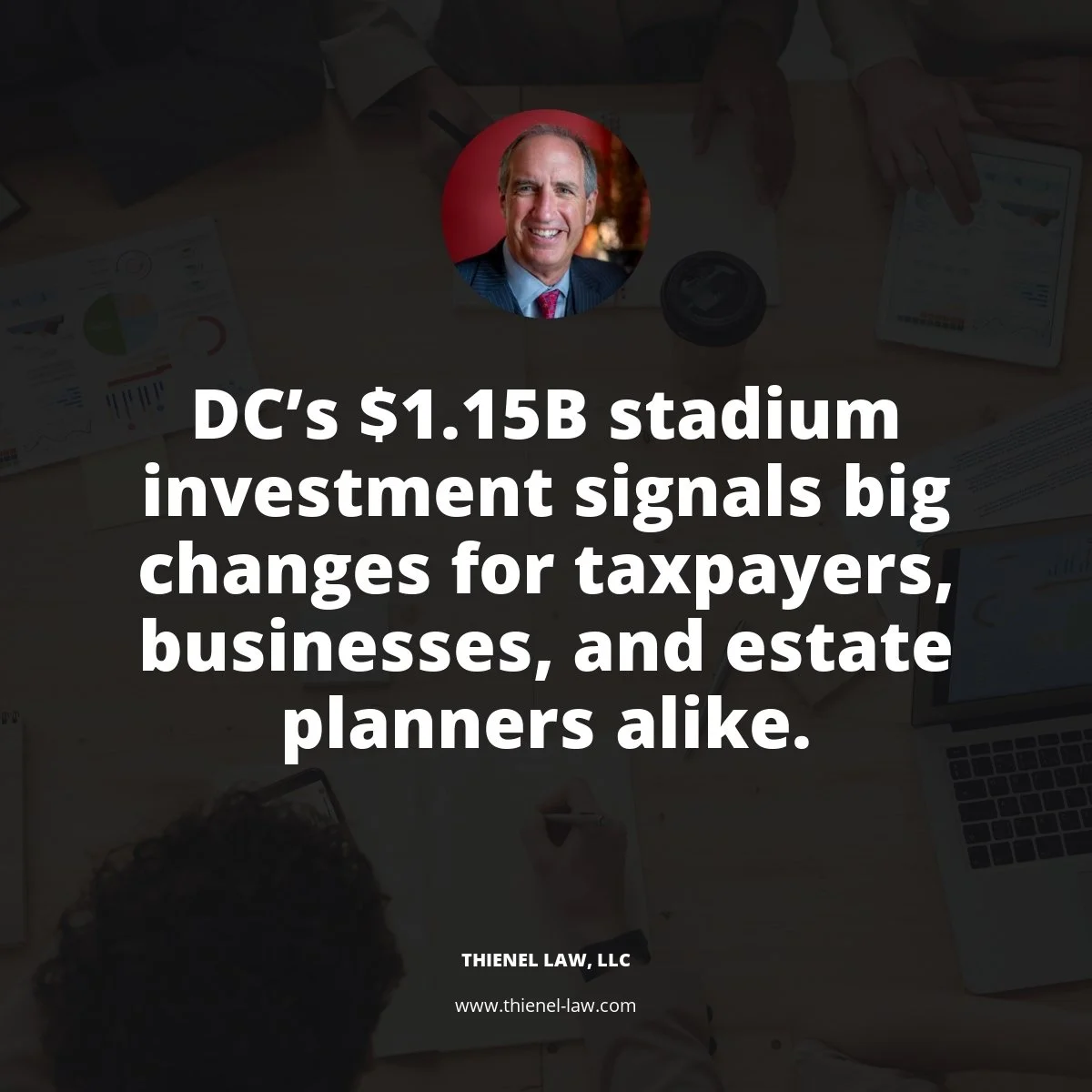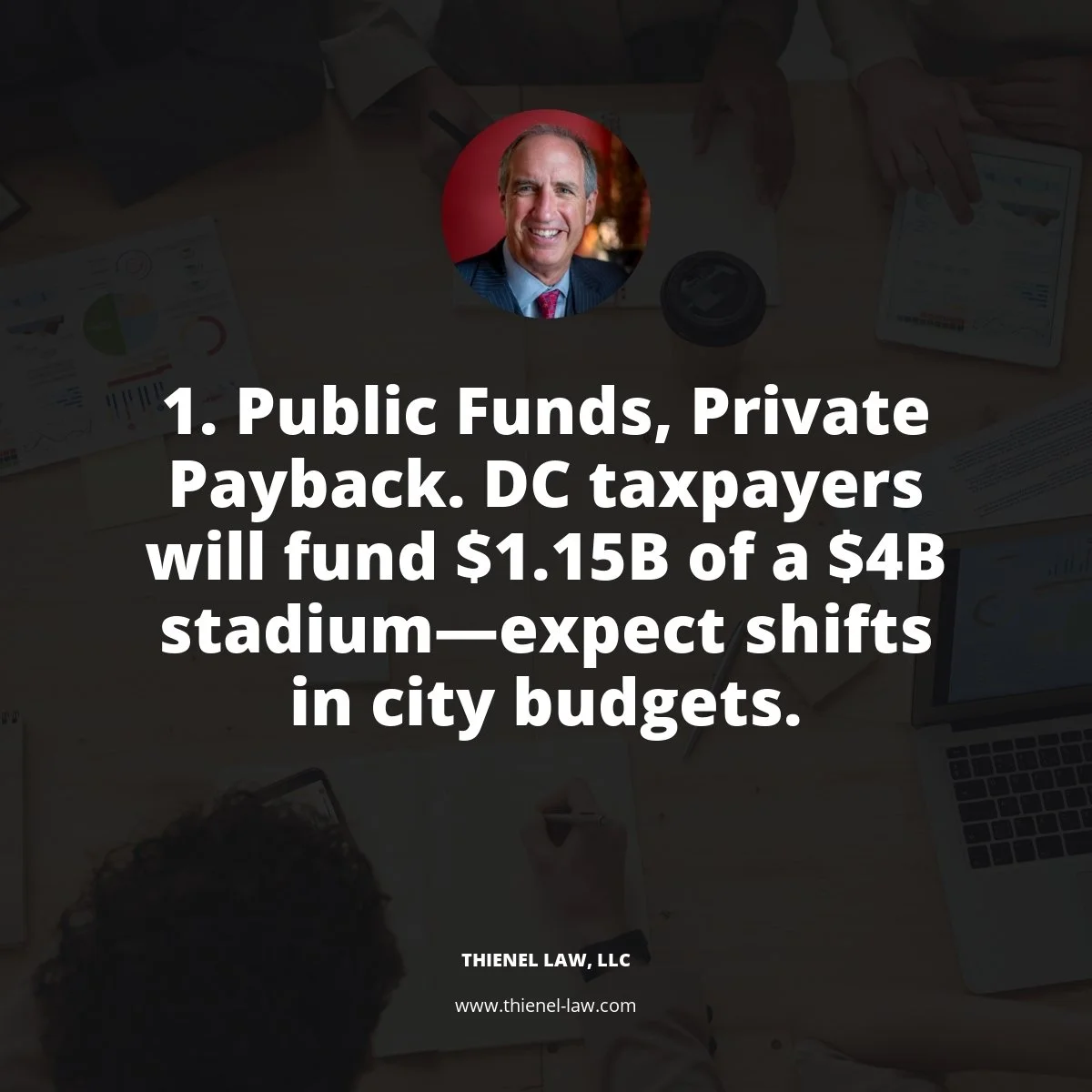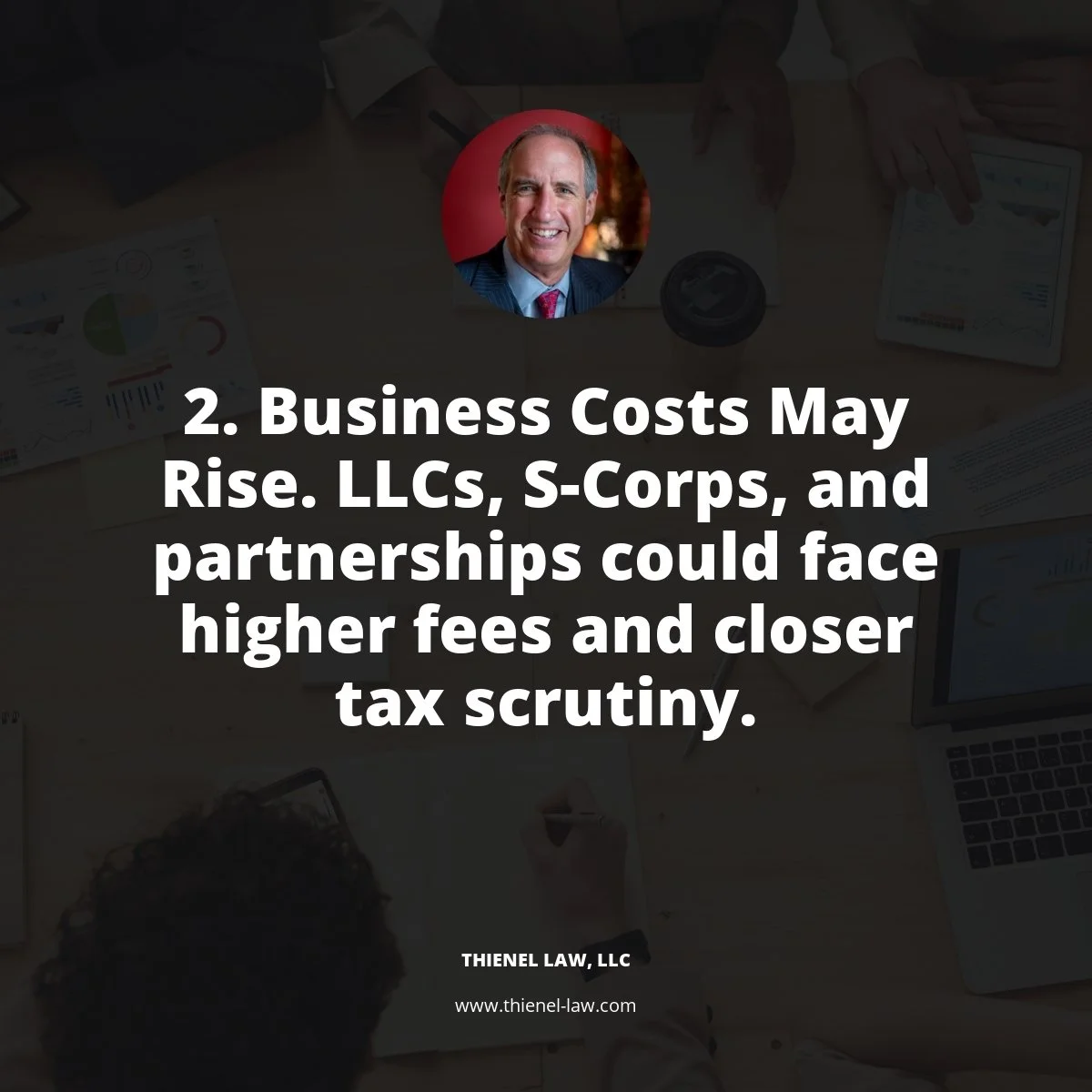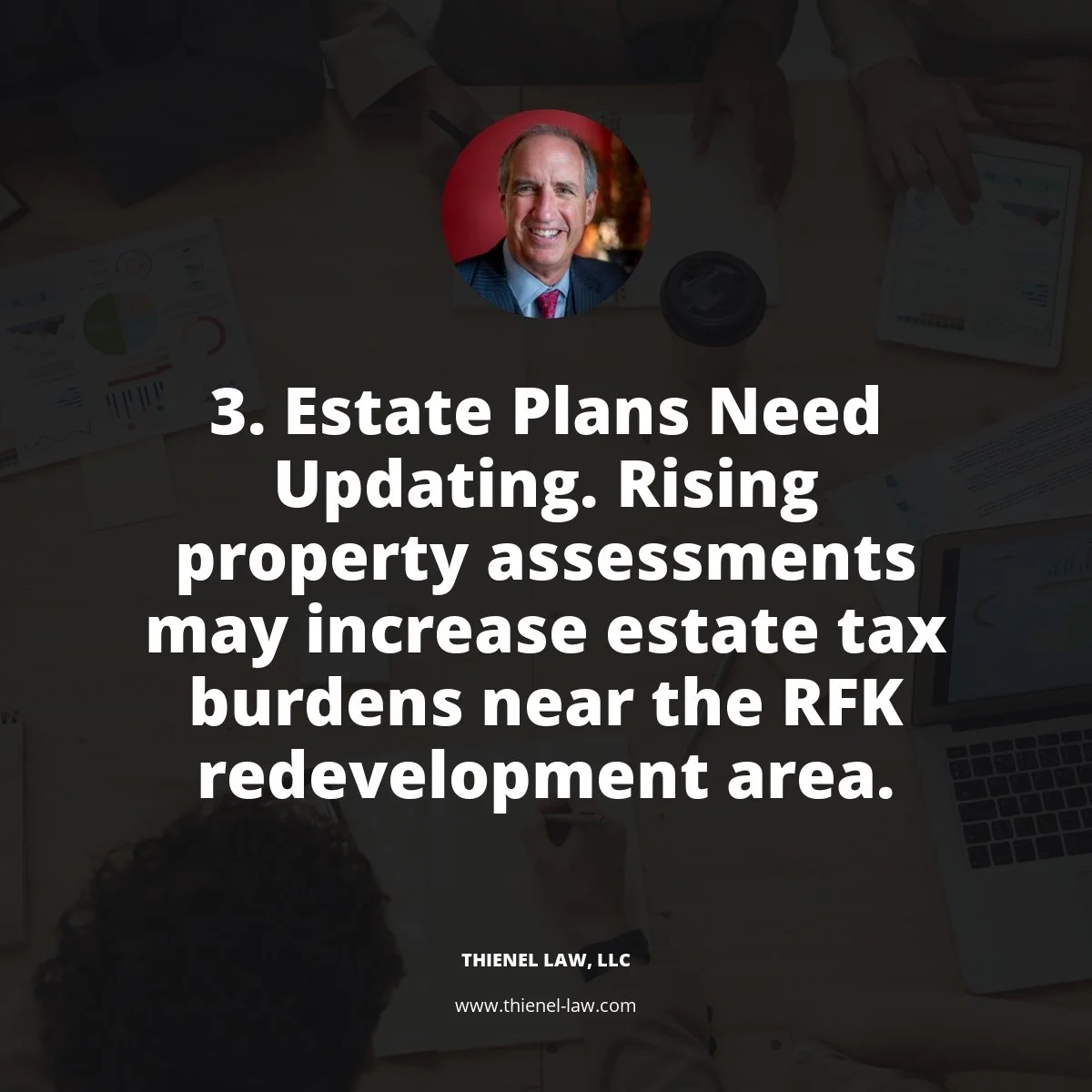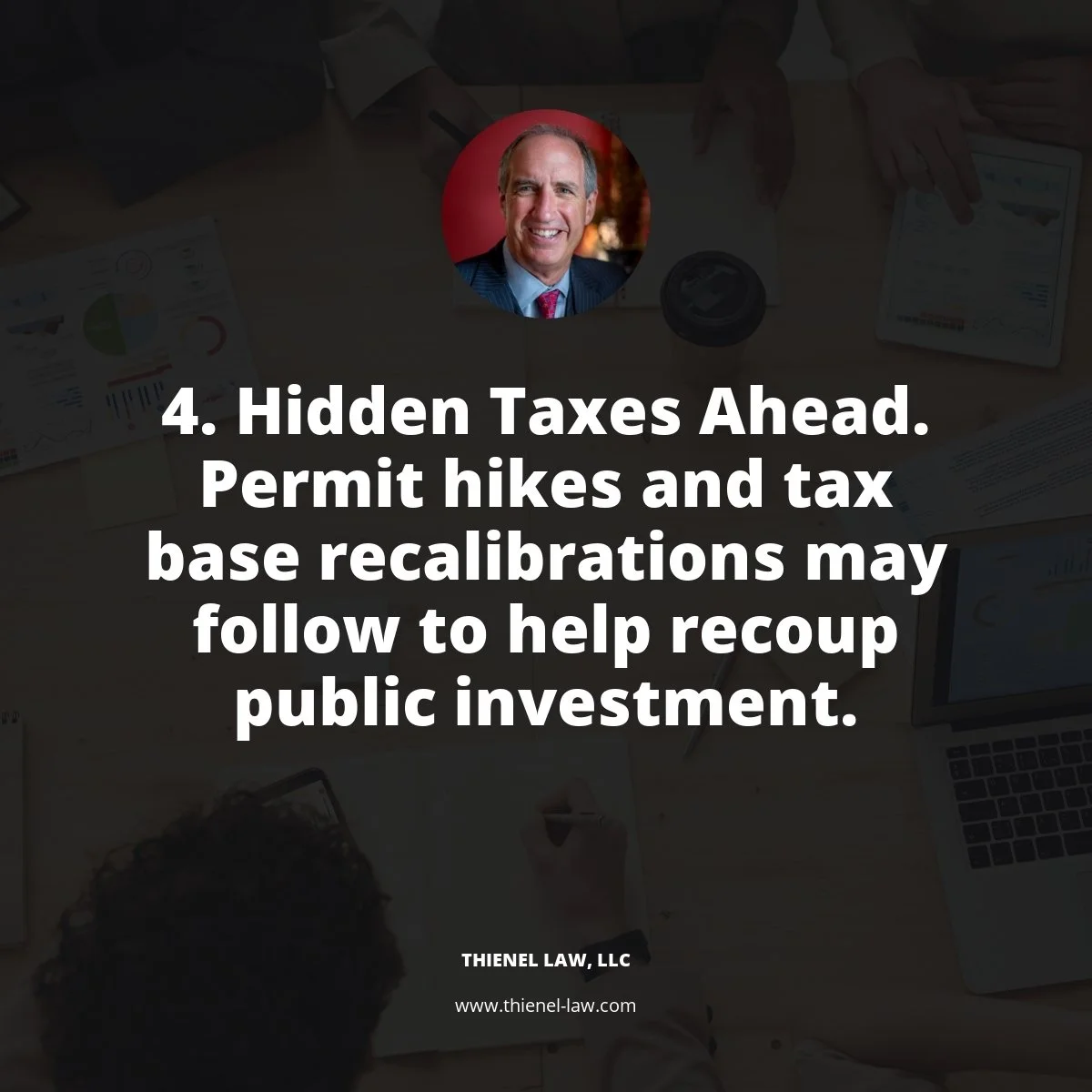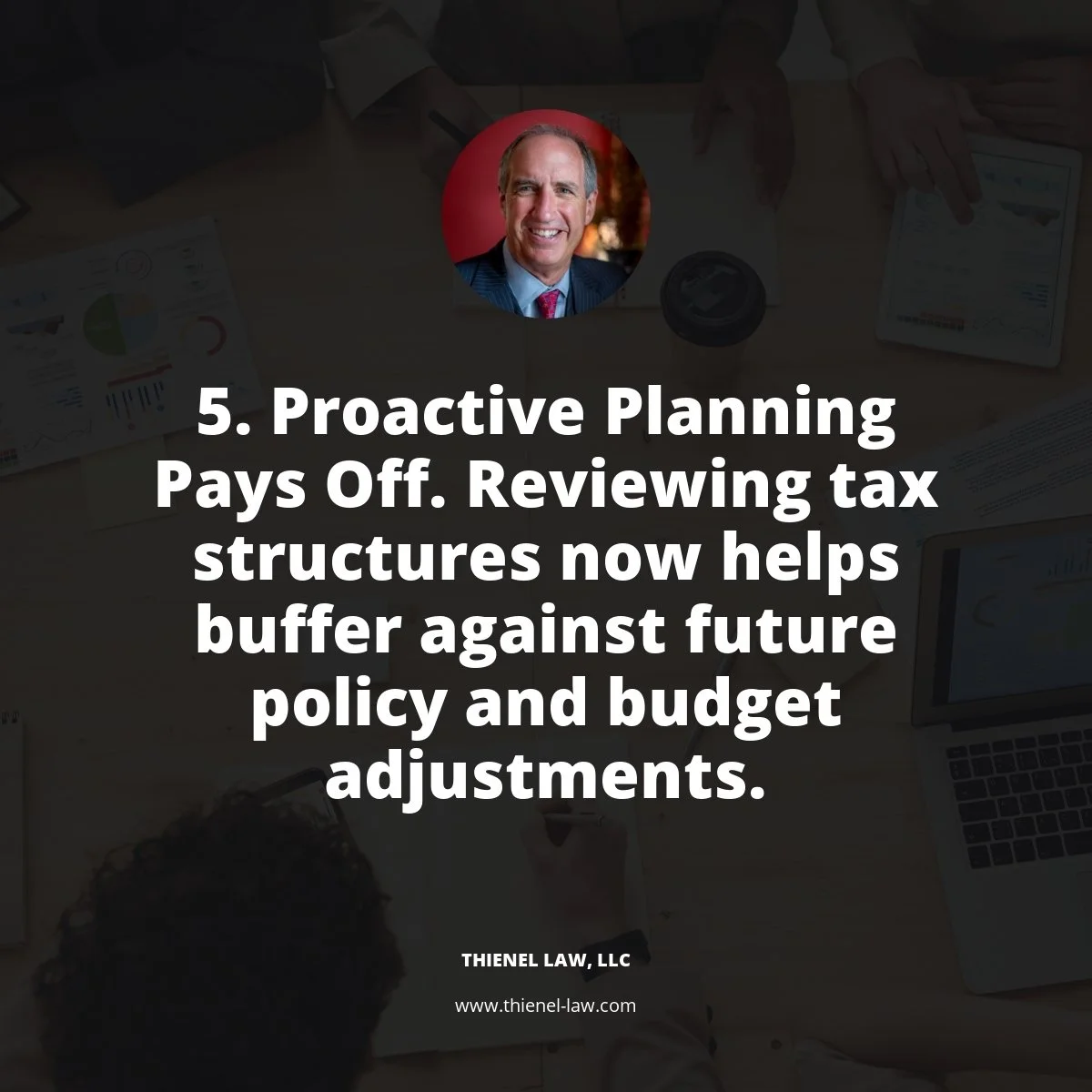What the Washington Commanders' Stadium Deal Means for DC-Area Taxpayers and Business Owners
Key Takeaways
DC taxpayers are set to contribute $1.15 billion in public funding toward a $4 billion stadium redevelopment for the Washington Commanders
The deal marks a significant use of public revenue for private enterprise, raising concerns about tax priorities in the District of Columbia
Business owners and high-net-worth individuals may feel indirect tax pressure as the city shifts resources to fund the development
Limited liability companies (LLCs), partnerships, and S-Corps operating in DC should anticipate increased scrutiny and possible fee adjustments to offset the city's investment
Estate and tax planning strategies may need revisiting to account for shifting fiscal policies and long-term regional implications
A New Stadium at a Public Cost
This spring's announcement that the Washington Commanders will return to the site of RFK Stadium sent a strong message—not just to sports fans, but to taxpayers and business leaders across the DMV. The $4 billion effort, funded in part by $1.15 billion of public money, is a bold public-private contract with wide-reaching effects.
For residents and business owners in Washington, D.C., the news is more than just a sports story. It's a policy signal—a clear indication of where city resources may be allocated in the years ahead. Public dollars earmarked for infrastructure, schools, and social services could instead help bankroll entertainment ventures. And while the long-term benefits of urban redevelopment remain to be seen, the short-term costs are far easier to measure.
At Thienel Law, we track shifts like these because they shape the financial and regulatory environment for the business owners, high-net-worth individuals, and professionals we serve. Below, we explain what's at stake and how to prepare for potential ripple effects on taxes, compliance, and strategic planning.
Who Really Pays? Understanding the Public Funding Component
While specifics of the stadium deal continue to evolve, we know this: $1.15 billion of the total project cost will be covered by public money. This signals enormous financial commitment from a city still recovering economically from the COVID-19 pandemic, with deep debates ongoing about budget shortfalls and tax increases.
The District of Columbia has not yet released a full outline of how these funds will be raised. Still, there's little mystery about where such revenue ultimately comes from: the city's taxpayers. Whether through property taxes, business activity taxes, sales taxes, or various licensing and registration fees, the pressure to raise funds will likely be felt across the economic spectrum.
For high-income individuals and business entities, this could mean increased examination of taxable activity and renewed efforts by government agencies to enhance revenue collection oversight.
Potential Impact on Business Entities: LLCs, S-Corps, and Partnerships
While no new tax has yet been announced in relation to the stadium, history provides useful guidance. Large-scale public investments often lead to downstream revenue strategies—especially in high-cost urban jurisdictions like DC.
Here are some practical ways local businesses may be affected:
License and permit fees could increase subtly over time, particularly in industries tied to real estate, construction, and hospitality—sectors likely to be closely linked to the broader RFK redevelopment
Business property tax assessments may be revisited, especially for commercial spaces located near the stadium zone, where rising property values could lead the city to recalibrate its tax base
Local business taxes, including the Unincorporated Business Franchise Tax and the DC Gross Receipts Tax, could be modified under future budget adjustments to balance expenditures
If you operate an LLC or a pass-through entity in DC, your tax structure may appear unchanged on the surface—but costs can mount as ancillary government fees rise. Now is a prudent time to run a compliance and tax liability review to model various what-if scenarios.
Example: A small construction firm organized as an S-Corp and bidding on contracts in the RFK redevelopment zone may need to reevaluate budget projections based on anticipated tax hikes or increased permit requirements tied to the stadium's construction timeline.
Estate and High Net Worth Planning Implications
For wealthy clients and families with significant holdings in the District, the broader fiscal landscape is shifting. The use of public money for stadium financing may prompt new city-level estate planning considerations, especially for those with assets impacted by property redevelopment.
Developments like the RFK site can raise local property values—great from a sales perspective, but problematic from a tax standpoint. If you hold real estate near the area—or if your property may even appear to benefit tangentially from related infrastructure expansions—track your assessments. Increases in value can lead to higher estate transfer obligations, particularly if wealth is transferred through trusts or intra-family transactions.
Example: A DC resident with a family trust containing a legacy property near the RFK site may find their asset revalued through adjusted appraisals. That shift could change the estate's tax burden and influence succession planning timelines.
Now is the time to review your estate plan with your tax advisor. Changes in local public investment strategies like this stadium deal often ripple through regulatory and valuation updates long before they're broadly discussed in the media.
Risk Management and Strategic Planning for Professionals and Business Owners
Whether you agree with the stadium deal or not, one thing is clear: public investment on this scale always creates risk-balancing behavior from policymakers. That means changes could be coming—either via new tax structures, targeted oversight campaigns, or regulatory adjustments made to close budget gaps.
Here's what you can do now to manage risk:
Reassess your business structure
Are you operating in the most tax-efficient structure for your income level and commercial activity? If not, now is a good time to explore options. For example, in some cases, transitioning from a sole proprietorship to an LLC or S-Corp can allow better liability protection and may improve flexibility with tax planning tools.Conduct a tax position review
Look at your filings from the last few years. Are there areas where new scrutiny could add exposure? A proactive file review now can save you from headaches later if audit thresholds are adjusted post-deal.Budget for tax escalation
Even a small increase in city tax rates or applicable fees (think business licensing or occupancy taxes) can impact cash flow, especially for small and midsize firms. Forecast your operating costs to account for these shifts before they catch you off-guard.Monitor legislative developments
Expect council debates and budget sessions to dominate DC policy over the next 12–24 months as lawmakers respond to feedback on the stadium project. Have someone (such as your legal or tax advisor) keep you informed—policy changes happen fast, and compliance is about preparation, not reaction.
What This Means in the Bigger Picture
The Washington Commanders' new stadium is more than a sports issue—it's a public policy choice with wide-ranging economic implications. Whether this turns out to be a catalyst for urban renewal or a contentious drain on resources remains to be seen.
What's indisputable, though, is that business owners, professionals, and high-net-worth individuals in the DC region now face the prospect of a shifting financial environment. Even without formal tax rate changes, subtle shifts in assessments, regulation, enforcement policy, and spending priorities can affect your bottom line.
Make no mistake: $1.15 billion is not a marginal sum. Its recovery—either through future economic growth or direct cost-reallocation—will require strategic financial planning. How you position yourself, your business, and your assets today matters.
Having legal advisors track these issues is essential, not just for compliance, but for identifying long-term opportunity in a changing landscape. Whether leveraging growth around the RFK area, preserving your estate, or making sure your business is ready for new cost pressures, proactive steps today can bring returns tomorrow.
We're Here to Help
If you're unsure how this applies to your business or personal situation, we're here to help. Schedule a consultation with Steve Thienel to get guidance tailored to your long-term goals. Whether you're navigating tax exposure, restructuring a business, or evaluating estate assets, informed legal advice makes all the difference. Let's chart your best path forward—together.

